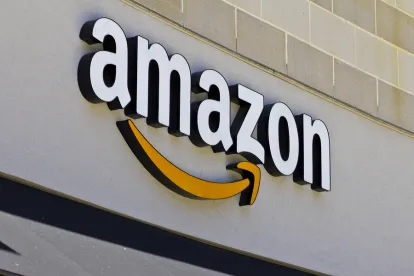In an investigation into Amazon’s March 2020 firing of former employee and organizer Christian (“Chris”) Smalls, the New York Attorney General’s office sent Amazon a letter stating the company may have violated several labor laws. The letter, shared with and described by some media outlets, informed Amazon that the preliminary assessment of the AG’s office is that the company may have violated Occupational Health and Safety (OSHA) provisions in the wake of the Covid-19 Pandemic. According to these reports, the AG’s letter indicates that the office has reason to believe that Amazon retaliated against Mr. Smalls for raising concerns about the health and safety of the conditions at Amazon’s Staten Island warehouse.
On March 30, New York’s Attorney General, Letitia James, issued a statement admonishing Amazon for firing an employee who organized a protest to address unsafe conditions at the company’s warehouse. The employee organized the demonstrations to address Amazon’s failure to take proper precautions to protect employee safety after discovering that several employees were positive for Covid-19, yet still coming to work. The employee was fired.
The Attorney General described this firing as a possible violation of New York State employee protections and publicly announced that her office would be considering every legal avenue, including referral to the National Labor and Relations Board. Further, in a March 31, 2020 press conference, New York City’s Mayor, Bill DeBlasio, said that Mr. Smalls firing could constitute a violation of the City’s Human Rights Laws. This letter evidences that Attorney General Letitia James is pursuing legal action as promised in her March 30 statement, and this action is producing evidence that Amazon may have violated several employment laws.
Workers who organize for safe work environments should be protected, and effective oversight like that being pursued by New York’s Attorney General is essential. However, whistleblowers like Chris Smalls would benefit from personal representation when they decide to speak out against their employers. Stephen Kohn, a founding partner at Kohn, Kohn, and Colapinto, LLP, and Chair of the National Whistleblower Center, recently penned an article on the unique challenges OSHA whistleblowers face in light of COVID-19 related violations.
Importantly, Mr. Kohn notes that “[T]he OSHA law has a ridiculously short statute of limitations. Employees must file their OSHA retaliation complaint within 30-days of any adverse action. If they do not meet that extremely short deadline, they automatically lose their case, regardless of how egregious the harm. This 30-day statute of limitation is among the shortest filing deadlines under any federal employment discrimination law.” Mr. Smalls was the lucky recipient of media attention, which ensured that the State Attorney General was immediately aware of the possible violations. Other employees subjected to potential violations during the pandemic will be at a disadvantage unless they take immediate action.
Finally, as Mr. Kohn discusses in his article, OSHA protections are woefully inadequate. And, this inadequacy makes professional representation even more essential. Whistleblowers who have been exposed to unsafe working conditions, where they fear exposure to COVID-19, should seek help to navigate the complicated and, at times, inadequate protections available to them. New York’s investigation into Amazon’s possible violations and any subsequent restitution offered Mr. Smalls, will set the stage for the countless similar (albeit less public) cases that will come to light as the nation returns to work under the new normal.




 />i
/>i

